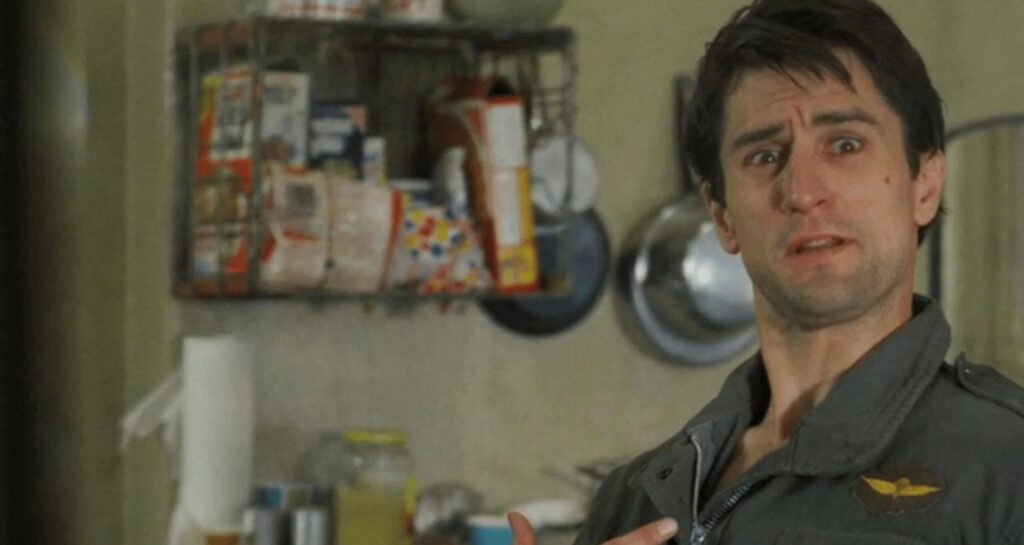Robert De Niro, a name synonymous with cinematic greatness, has graced the silver screen with a plethora of characters that are as diverse as they are impactful. His roles often transcend mere performance, hinting at a deeper life philosophy that the actor might subscribe to. In this exploration, we will delve into seven iconic roles played by De Niro and uncover what they reveal about his personal outlook on life.
Taxi Driver as Travis Bickle
The character of Travis Bickle in Taxi Driver is a profound study of a man’s quest for meaning in a world that appears bleak and chaotic. Travis Bickle’s journey is one of self-therapy, emerging from Schrader’s own dark period, and provides a canvas for De Niro to explore and reflect on his own search for purpose. The improvisational freedom within the role allowed De Niro to infuse Bickle with an authenticity that resonates with anyone’s inner struggle against the societal tide.
Raging Bull as Jake LaMotta
Jake LaMotta’s tumultuous rise and fall in both his career and personal life showcases a man wrestling with his demons, striving for redemption amidst self-destruction. Raging Bull‘s LaMotta is brought to life with an intensity that only De Niro could muster, reflecting perhaps a personal understanding of resilience against one’s darker nature. To raise the stakes even further, De Niro’s portrayal of this real-life Rocky Balboa… also had to live up to the expectations of Mr. LaMotta himself,
adding layers of complexity to an already troubled protagonist.
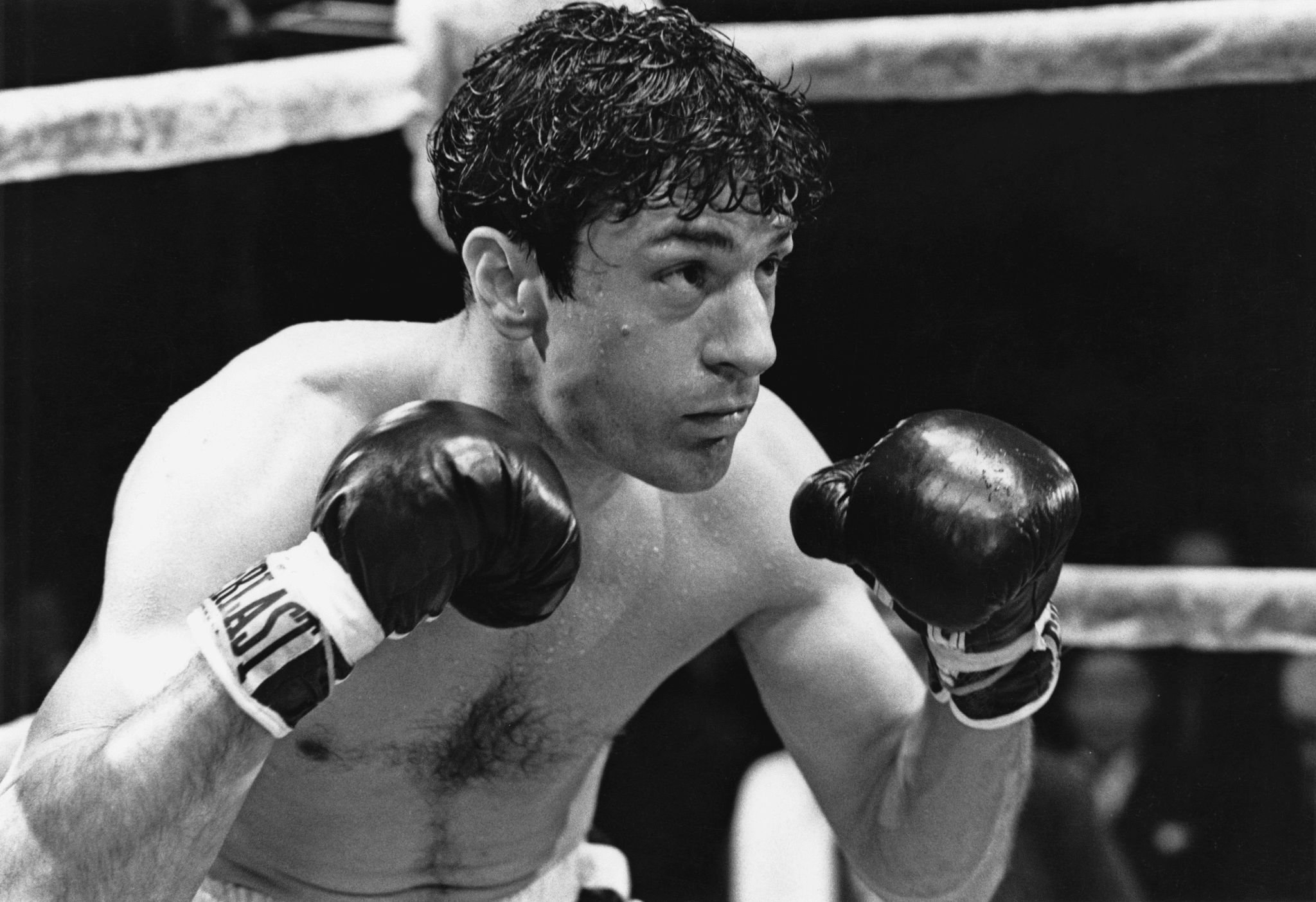

The Godfather Part II as Vito Corleone
The saga of Vito Corleone is one of ambition, determination, and legacy. His rise from Sicilian orphan to mafia don mirrors the belief in the power of self-made success. Vito Corleone’s story arc, as portrayed by De Niro, speaks to an ethos of creating one’s destiny despite humble beginnings and adversity. It’s a philosophy that celebrates the journey over the destination, recognizing the value in every step towards building something lasting.
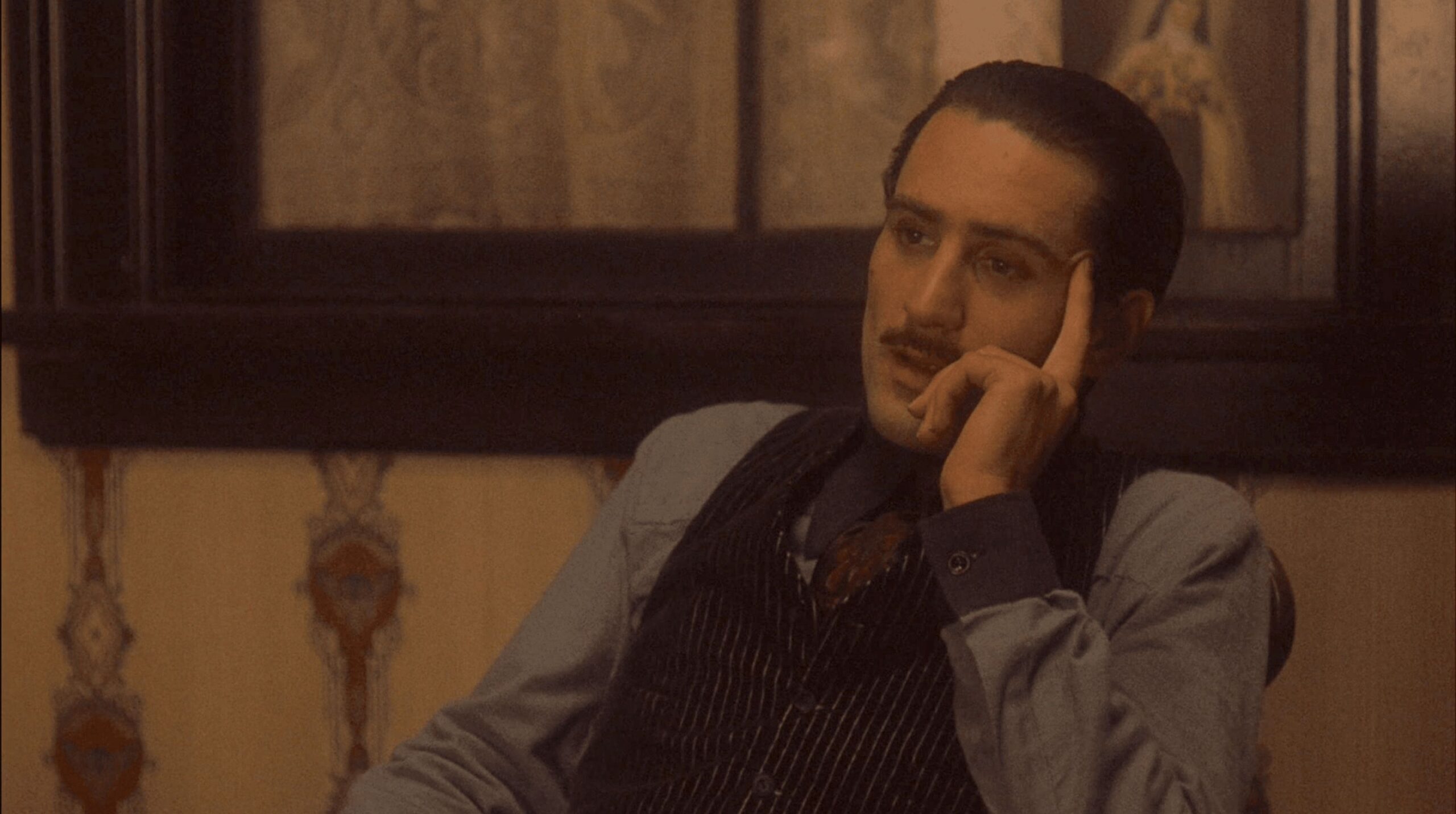

Silver Linings Playbook as Patrizio Solitano Sr
In Silver Linings Playbook, Patrizio Solitano Sr.’s unwavering support for his son amidst mental health struggles highlights the importance of family and loyalty. This role may very well reflect De Niro’s own values on familial bonds and the lengths one goes to protect and uplift their loved ones. The emotional depth within the film resonates with anyone who has experienced the complexities of family life and the unconditional love it entails.
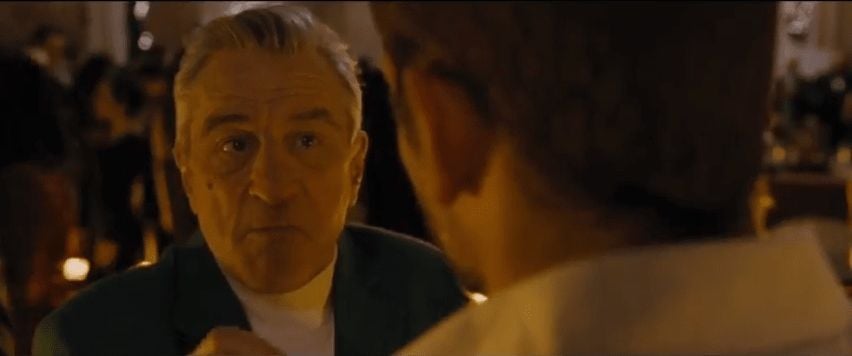

Heat as Neil McCauley
Neil McCauley from Heat is a masterclass in discipline and professionalism. The character’s strict code and detachment from personal ties reflect a philosophy where mastery and dedication are paramount. De Niro’s portrayal embodies this approach to work and life, suggesting a respect for those who excel through meticulous planning and execution.
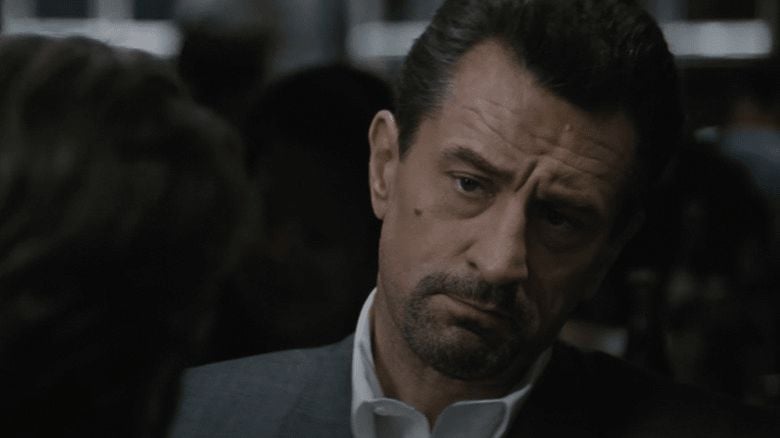

Meet the Parents as Jack Byrnes
Jack Byrnes from Meet the Parents is an overprotective father whose CIA background informs his approach to family dynamics. His stringent control over his daughter’s suitors may hint at De Niro’s thoughts on trust within family structures. The character’s intimidating presence serves as a metaphor for the challenges that arise when navigating relationships built on love yet strained by an instinctive need for control.
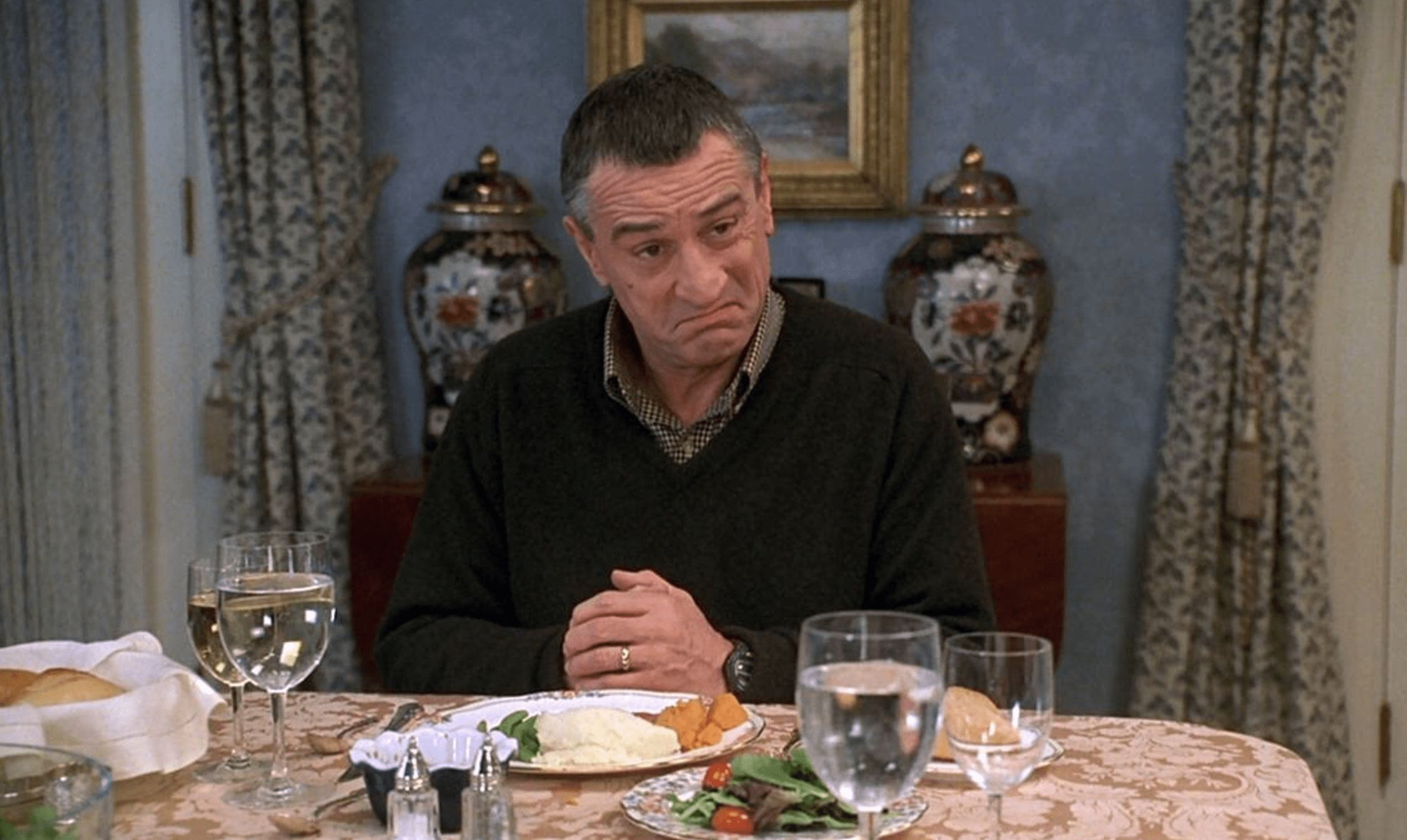

The Intern as Ben Whittaker
Ben Whittaker in The Intern represents adaptability and lifelong learning. His decision to take on an internship at an advanced age encapsulates a philosophy that it’s never too late to embark on new adventures or challenge oneself. This role aligns with De Niro’s belief in staying curious and open-minded throughout life’s journey, embracing change rather than resisting it.
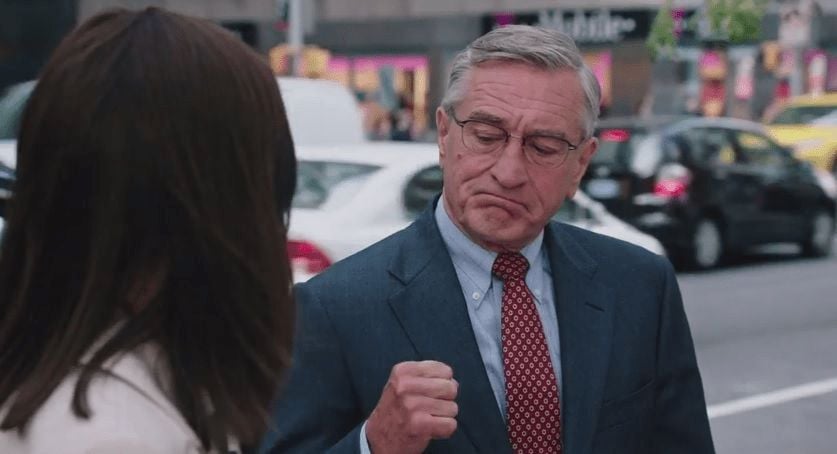

In summarizing these insights from Robert De Niro’s roles, we see reflections of a man who values determination, family loyalty, professionalism, trust, control dynamics, learning, and adaptability. These cinematic explorations offer us not just entertainment but also lessons that can inspire our own life philosophies. As we appreciate these stories on screen, we might also consider how they mirror our individual pursuits of meaning and fulfillment.

